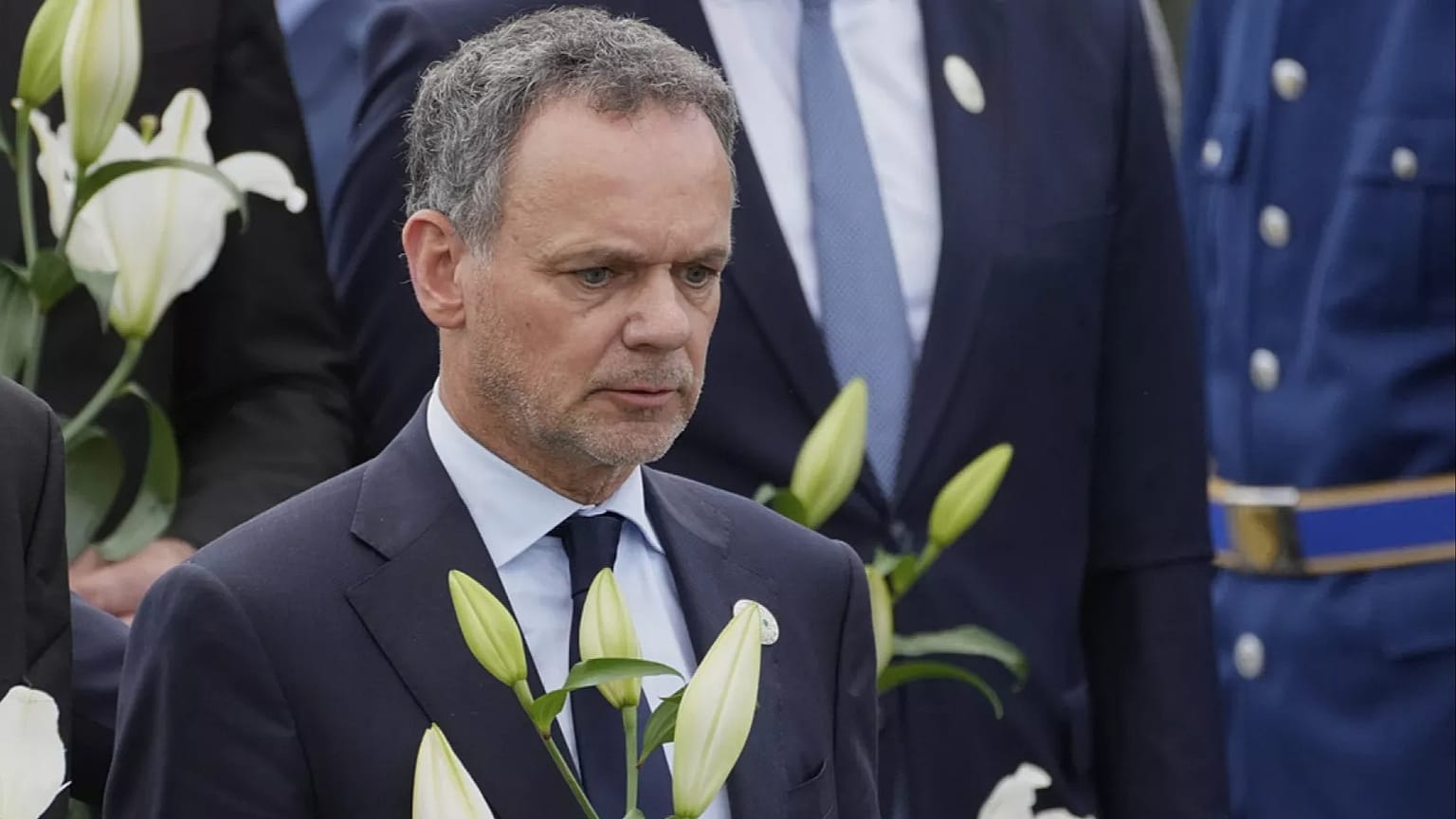Politics
Dutch Political Crisis Deepens as NSC Ministers Resign

The political landscape in the Netherlands has become increasingly unstable following the resignation of Foreign Minister Caspar Veldkamp and all members of the New Social Contract (NSC) party. This decision leaves only two of the four coalition partners intact, further complicating an already fragile government situation. The cabinet is currently functioning in a caretaker role, a status that is unlikely to change with the NSC’s departure.
The remaining coalition partners, the People’s Party for Freedom and Democracy (VVD) and the Farmer-Citizen Movement (BBB), expressed confusion over the NSC’s exit. VVD Deputy Prime Minister Sophie Hermans described the move as “irresponsible.” Prime Minister Dick Schoof stated in a message to the House of Representatives that he respects the decision but feels profound regret. He emphasized the need for further discussions regarding the country’s political status, indicating that a letter will be sent to the House, followed by a debate early next week.
Resignation Sparks New Political Dynamics
The crisis was precipitated by Veldkamp’s intention to introduce new measures addressing Israel’s military actions in Gaza, but he was unable to garner support from coalition partners. In a statement, the 61-year-old former ambassador to Israel expressed his frustration, stating that he felt unable to “implement policy myself and chart the course I deem necessary.”
The NSC party leader, Eddy Van Hijum, strongly criticized the Israeli government’s actions, labeling them as “diametrically opposed to international treaties.” He conveyed that the party had reached their limit regarding the situation. Following the resignation, Dutch Defence Minister Robin Brekelmans has assumed the role of acting Foreign Minister.
This political turmoil follows a previous collapse of the Dutch government in June 2023, when anti-Islam lawmaker Geert Wilders exited the coalition over immigration disputes. Since then, the government has remained in a caretaker capacity.
Legislative Challenges and Public Sentiment
In the wake of these resignations, the Dutch parliament recently voted against proposals aimed at applying pressure on Israel. A suggested ban on the purchase of weapons from Israel and a motion to recognize Palestine were both rejected. Veldkamp had initially proposed a ban on imports from Israeli settlements in occupied Palestinian territories as a response to the planned military escalation, but these efforts have not gained traction.
Opposition politicians have voiced frustration, calling for a no-confidence vote against Veldkamp due to perceived inaction regarding Israel. As the political crisis unfolds, the implications for Dutch foreign policy and domestic governance remain uncertain, with public sentiment likely to influence future political maneuvers.
-

 Top Stories3 months ago
Top Stories3 months agoTributes Surge for 9-Year-Old Leon Briody After Cancer Battle
-

 Entertainment4 months ago
Entertainment4 months agoAimee Osbourne Joins Family for Emotional Tribute to Ozzy
-

 Politics4 months ago
Politics4 months agoDanny Healy-Rae Considers Complaint After Altercation with Garda
-

 Top Stories4 months ago
Top Stories4 months agoIreland Enjoys Summer Heat as Hurricane Erin Approaches Atlantic
-

 World5 months ago
World5 months agoHawaii Commemorates 80 Years Since Hiroshima Bombing with Ceremony
-

 Top Stories3 months ago
Top Stories3 months agoNewcastle West Woman Patricia Foley Found Safe After Urgent Search
-

 Top Stories5 months ago
Top Stories5 months agoFianna Fáil TDs Urgently Consider Maire Geoghegan-Quinn for Presidency
-

 World5 months ago
World5 months agoCouple Convicted of Murdering Two-Year-Old Grandson in Wales
-

 World5 months ago
World5 months agoGaza Aid Distribution Tragedy: 20 Killed Amid Ongoing Violence
-

 World5 months ago
World5 months agoAristocrat Constance Marten and Partner Convicted of Infant Murder
-

 Top Stories4 months ago
Top Stories4 months agoClimbing Errigal: A Must-Do Summer Adventure in Donegal
-

 Top Stories4 months ago
Top Stories4 months agoHike Donegal’s Errigal Mountain NOW for Unforgettable Summer Views









